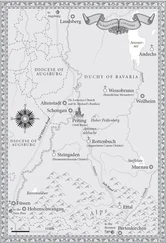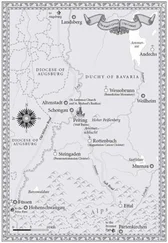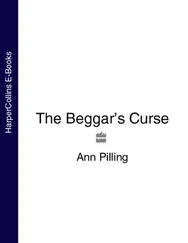Oliver Potzsch - The Beggar King
Здесь есть возможность читать онлайн «Oliver Potzsch - The Beggar King» весь текст электронной книги совершенно бесплатно (целиком полную версию без сокращений). В некоторых случаях можно слушать аудио, скачать через торрент в формате fb2 и присутствует краткое содержание. Жанр: Исторический детектив, на английском языке. Описание произведения, (предисловие) а так же отзывы посетителей доступны на портале библиотеки ЛибКат.
- Название:The Beggar King
- Автор:
- Жанр:
- Год:неизвестен
- ISBN:нет данных
- Рейтинг книги:5 / 5. Голосов: 1
-
Избранное:Добавить в избранное
- Отзывы:
-
Ваша оценка:
- 100
- 1
- 2
- 3
- 4
- 5
The Beggar King: краткое содержание, описание и аннотация
Предлагаем к чтению аннотацию, описание, краткое содержание или предисловие (зависит от того, что написал сам автор книги «The Beggar King»). Если вы не нашли необходимую информацию о книге — напишите в комментариях, мы постараемся отыскать её.
The Beggar King — читать онлайн бесплатно полную книгу (весь текст) целиком
Ниже представлен текст книги, разбитый по страницам. Система сохранения места последней прочитанной страницы, позволяет с удобством читать онлайн бесплатно книгу «The Beggar King», без необходимости каждый раз заново искать на чём Вы остановились. Поставьте закладку, и сможете в любой момент перейти на страницу, на которой закончили чтение.
Интервал:
Закладка:
Kuisl was about to let loose a tirade, but Magdalena cut him off. “If you’re well enough to quarrel, your fever can’t be too serious,” she snapped. “And now let’s clear out of here before the Regensburgers change their minds and decide to hang the hangman again.”
“Just who are all those people back there?” Kuisl inquired, pointing to the band of beggars gathered around an elderly man in a tattered coat and wide-brimmed hat. When the old man noticed Kuisl looking at him, he grinned, revealing a sparkling gold tooth.
“They look just like the people I have to beat up and run out of town back home. Are they with you?” the hangman asked.
Magdalena smiled. “You might say that, or we with them.”
She jumped down from the scaffold and skipped off between the crates while Simon, Kuisl, and the old treasurer stared after her.
“A headstrong girl, that daughter of yours,” Mamminger said. “Takes after you.”
Suddenly the hangman’s face darkened, and he stared off into space. The two nooses swayed back and forth in the wind like two enormous pendulums.
“Whether she takes after me or not, she certainly is one hell of a woman,” Kuisl replied. “A hangman’s daughter is always in league with the devil.”
He climbed down from the scaffold with Simon and walked toward the pier. For a while they stood silently on the shore, watching waves splash and foam between the grimy pillars under the dock. The hangman took a crumpled piece of paper from his shirt pocket, tore it into small pieces, and scattered them over the water. Like tiny white leaves, they drifted away until finally the waves swallowed them up.
“What was that?” asked Simon, surprised. “The letter you received last night?”
Kuisl stared a few moments longer at the water, then turned abruptly toward the Stone Bridge, where Magdalena was already waiting.
“Nothing important-just a little piece of the past. Who cares what happened so long ago?” he answered.
Magdalena let her legs dangle over the side of the pier and watched them approach, her eyes black and sparkling like two embers on a cold night, a broad smile on her lips.
The hangman felt he’d never loved his daughter so much in his life as he did at this moment.
EPILOGUE
REGENSBURG
TWO MONTHS LATER, 1662 AD
By the end of October barons, dukes, freemen, and counts had started streaming into Regensburg. With their colorful costumes, boisterous servants, and countless coaches, wagons, and carts-all pulled by handsome steeds-they gave just a taste of what Regensburg was in for when the Reichstag would officially begin in January. The strangers, an exotic crowd from the farthest reaches of the German Empire, filled the narrow streets and houses with noise and life. Speaking in exotic tongues, servants brawled in the taverns with the locals while noble gentlemen shopped the markets until the shelves were bare. The locals whined and complained, and many already longed for the day the kaiser would leave again.
Jakob Kuisl didn’t see much of this, though. For the first few days his fever was so high he woke only from time to time for a sip of thin barley soup. As was customary among hangmen, he stayed at Teuber’s house, where for the next two months Simon, Magdalena, and Teuber’s wife nursed the two executioners back to health. Caroline Teuber said she’d never seen such good friends curse each other so much. When their fevers finally broke after almost ten days and their strength began to return, the two hangmen lay in the Teubers’ wide marital bed quarreling like sick, bored children, complaining constantly about the medicine, the lukewarm mulled wine, and the mushy food.
“I can only hope they get better soon,” Caroline sighed as she stood alongside Magdalena, stirring a pot of fragrant green oil. “I have my hands full with my five youngsters and don’t need to hear any more arguing.”
During those first few days Philipp Teuber had been on the brink of death. He woke up screaming with recurrent fever dreams of being hanged by a furious mob. His chest wound healed surprisingly quickly, however. The bolt, which had missed his lung by less than an inch, pierced straight through the muscles in his shoulder. When Teuber first regained consciousness, he credited the successful cure to his own ointment. Jakob Kuisl, on the other hand, was convinced that bad weeds don’t die. Even Kuisl’s shoulder and the severe burns on his arms and legs were healing well. His blisters left little pockmarks, however, that would remind the hangman forever of his time in the Regensburg torture chamber.
Soon after Kuisl was spared execution at the raft landing, Mamminger proposed to the city council that the Schongau executioner be declared innocent. The treasurer was able to convince the patricians that Kuisl was a victim of the scheming freemen, who after the death of their leader had vanished as suddenly as they’d appeared-almost as if they’d never even existed.
City guards burned the thirty bags of ergot in a field near Regensburg. In the end only Mamminger and a few patricians in the inner circle knew about the monstrous plan to poison the Reichstag. The treasurer considered it advisable to let as few people as possible in on the incident-in part, not to upset people unnecessarily, but also to avoid giving any visiting nobles the wrong idea. Even Nathan fell silent, and Simon had to imagine the beggar king had received a tidy sum of money from Mamminger for that.
On a cold, wet October morning, the medicus installed Nathan’s new set of gold teeth as promised. It was on this occasion that Simon learned something interesting about his adversary, the Venetian.
“Yesterday I was out at the wellspring,” the beggar king said casually as the medicus packed his instruments. “And just imagine-they’ve found Silvio!”
“After all this time?” Simon was so astonished he almost dropped his stiletto. “Is he alive?”
Nathan grinned. “Only if there’s life after death.” Then he told the excited medicus what he learned after bribing one of the guards.
The bailiffs ordered the well house opened when farmers began complaining about a disgusting odor coming from the door. Just inside the guards found Silvio’s half-decomposed corpse. Evidently the Venetian had wandered for days through the labyrinth of corridors and subterranean springs but, finding no exit, had slowly starved to death inside the well house.
“Do you know what’s so funny about the whole thing?” Nathan said as he admired his gold teeth in a polished copper mirror. “All his pockets were full of that bluish stuff. He must have hidden a little sack somewhere the guards hadn’t seen. As his hunger grew, it seems he ate the flour. His whole jacket was white with it; he must have really stuffed himself full. And now listen to this…” Nathan paused for dramatic effect and winked at Simon. “They swore they’d never seen a corpse with such a horrified expression-his eyes wide with fear, his mouth open in a fixed scream, his cheeks sunken in. And they say his hair was white as snow, as if he’d caught sight of Satan and all the demons of the underworld at once! What a gruesome death!” Nathan shuddered before turning to examine his teeth again, extracting a filament of meat lodged there.
“Alone in the dark for days, a prisoner of his own madness!” Simon mused. “I wonder what sort of nightmares he suffered. Well, in the end, at least he found out exactly how that damn ergot works.”
By early November they were finally ready to leave. Simon and Magdalena paid a final visit to the beggars down under Neupfarr Church Square where they celebrated all night. Hans Reiser cried a bit, but when Simon promised him one of his books about herbs, the old man quickly calmed down again. The medicus knew he’d found a worthy successor in this man who was so thirsty for knowledge, that soon the beggars in Regensburg would be able to seek help from one of their own. After all, healing herbs grew in every garden in town and needed only to be gathered secretly, under the light of the moon.
Читать дальшеИнтервал:
Закладка:
Похожие книги на «The Beggar King»
Представляем Вашему вниманию похожие книги на «The Beggar King» списком для выбора. Мы отобрали схожую по названию и смыслу литературу в надежде предоставить читателям больше вариантов отыскать новые, интересные, ещё непрочитанные произведения.
Обсуждение, отзывы о книге «The Beggar King» и просто собственные мнения читателей. Оставьте ваши комментарии, напишите, что Вы думаете о произведении, его смысле или главных героях. Укажите что конкретно понравилось, а что нет, и почему Вы так считаете.












